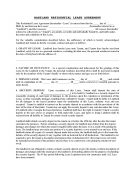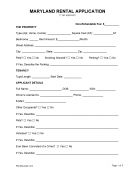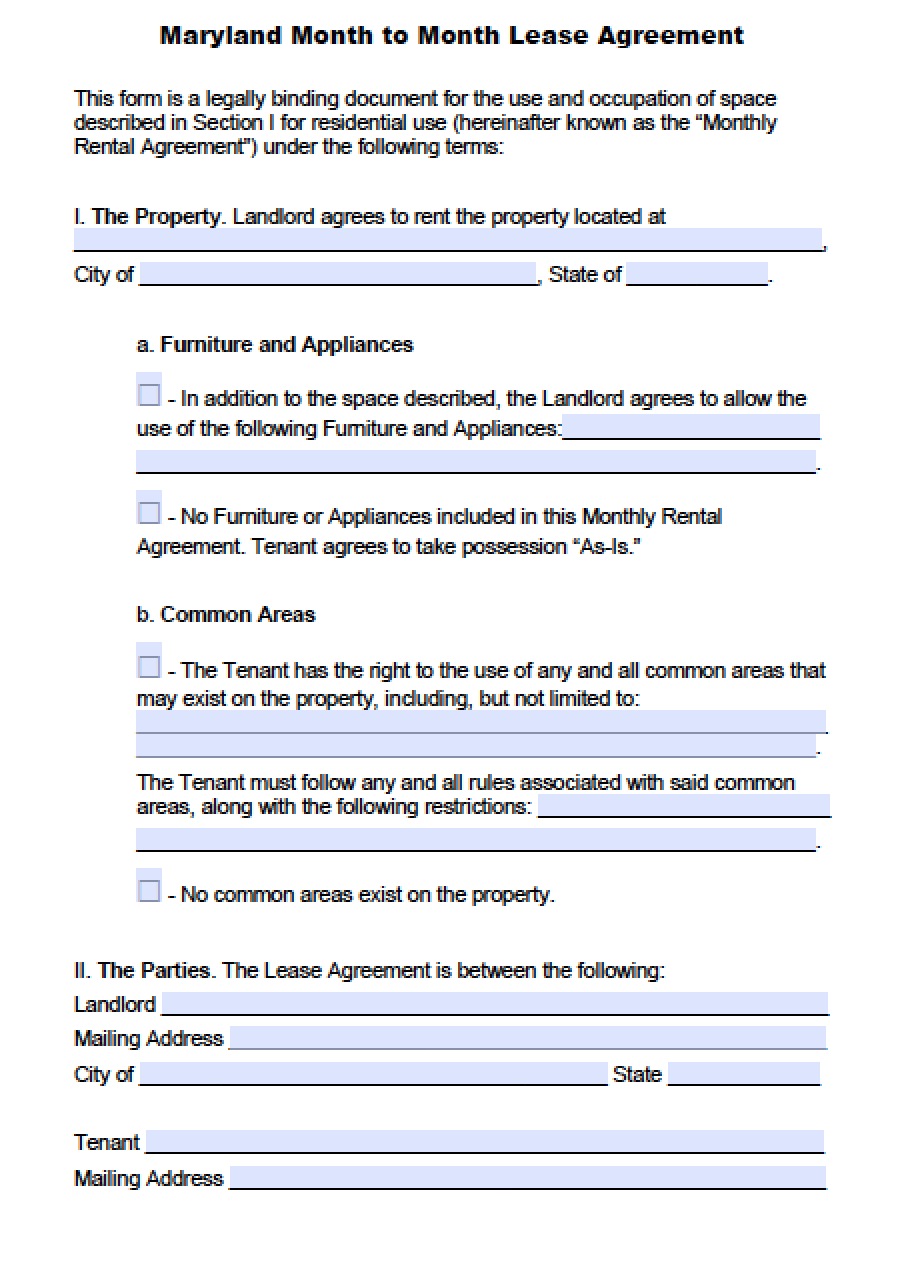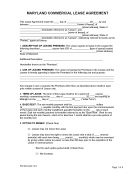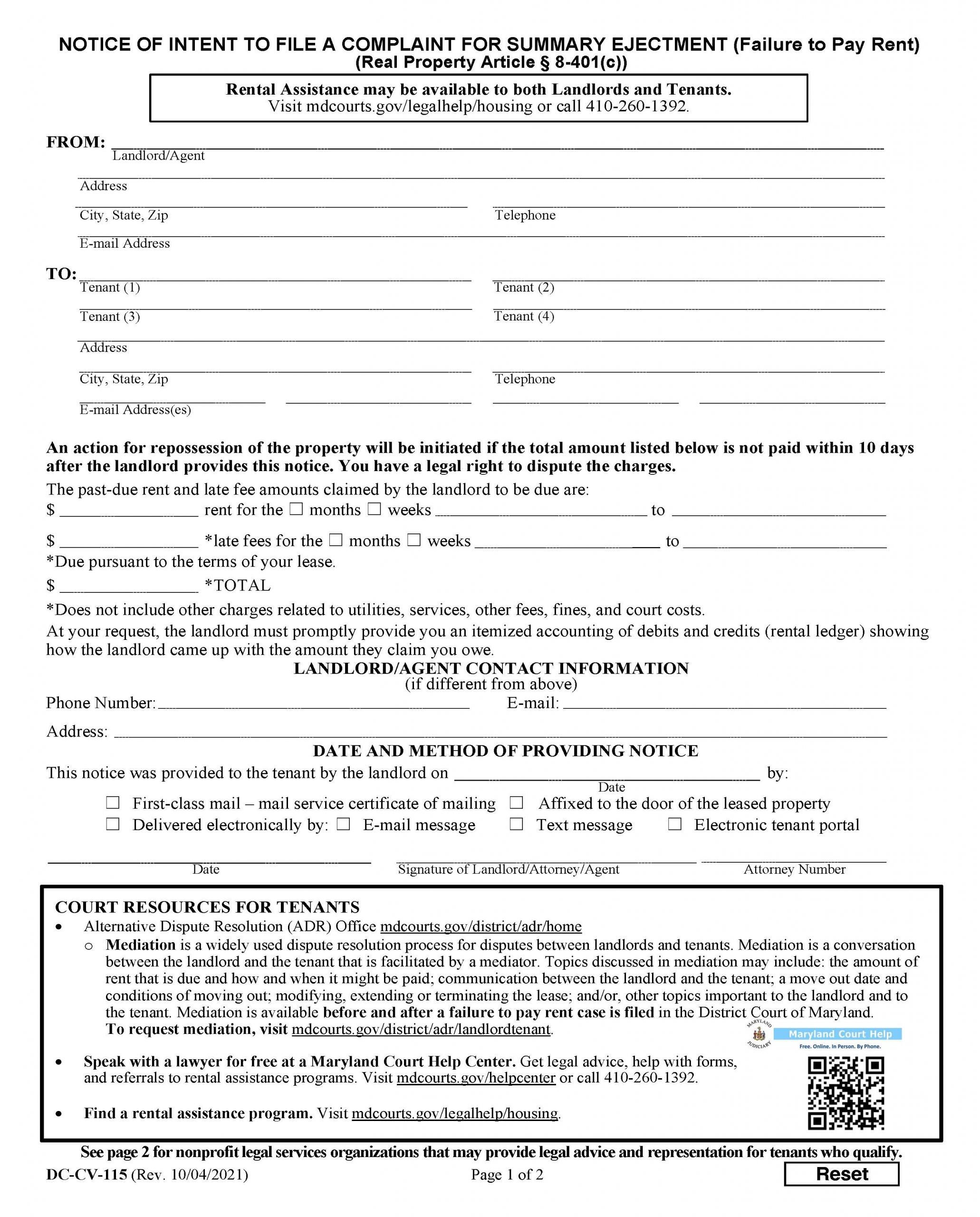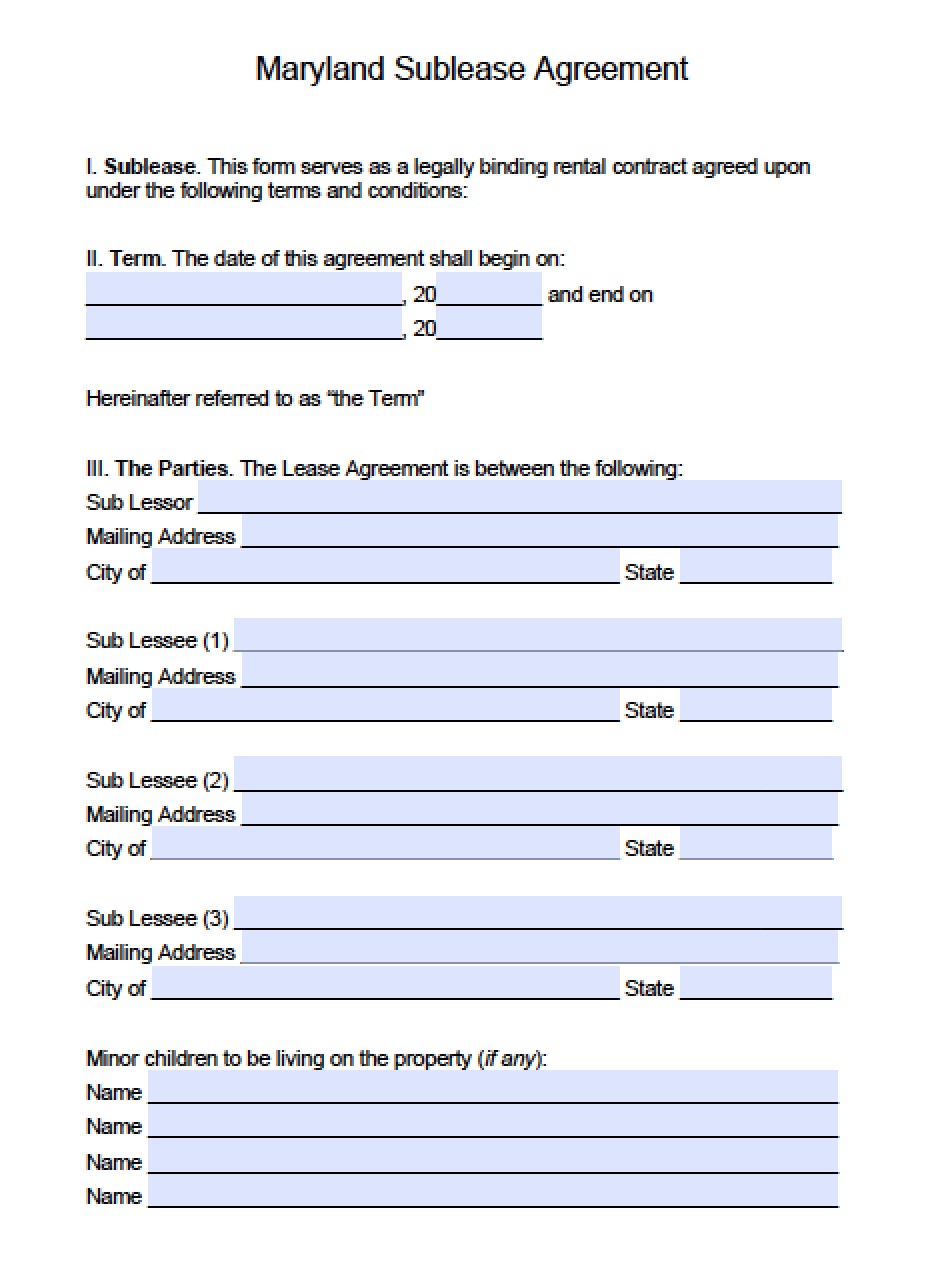Maryland lease agreements are legal contracts that allow a landlord and tenant to sign off on an arrangement regarding the rental of residential or commercial property. The standard agreement features a one (1) year arrangement for livable space with the lessee making payments on a monthly basis. Other agreements may occur on a monthly basis or “tenancy at will” in which there is no set termination date for the contract. Whether the property owner or manager is renting a commercial or residential property, it is advised to screen any potential tenants by conducting a background check on them.
Maryland Rental Lease Agreement Templates | PDF
Maryland Lease Agreements
The Maryland standard residential lease agreement is designated for landlords and tenants seeking a fixed-term arrangement, usually of one (1) year, with monthly payments to be made on the first (1st) of each month. After the tenant commits to renting a residential property, the landlord will usually ask that they undergo a background check through the rental application. Once approved, the landlord will decide upon the security deposit, which can be an amount equal to a maximum of two (2)…
The Maryland rental application allows a landlord to view the credit and rental history of applying tenants to determine if they are suitable candidates. A non-refundable fee may be charged by the landlord whether the applicant is approved or not. After a thorough review has been made, the landlord will inform the applicant whether they are accepted and how much their security deposit will be (if any). Application Fee – There is no maximum limit. However, the landlord must return any unspent…
The Maryland month-to-month rental agreement, or “tenancy at will,” is for a landlord-tenant relationship that has no specific end date and continues as long as the lessee pays rent. This type of arrangement is often used for temporary residents, contract workers, travelers, and other individuals who cannot commit to a longer-term contract. Even though the tenant is renting for what may be a short-term period, the eviction laws in Maryland remain the same for all types of residences. Therefore, the…
A Maryland commercial lease agreement is a legal contract that binds an individual or entity to make monthly payments to a landlord in exchange for the use of office, industrial, or retail space. There are many factors that go into this type of agreement but the first order of action by the landlord is to always verify interested parties through a rental application as well as investigate their business using the Secretary of State’s Business Database. There are three (3)…
The Maryland eviction notice allows for a landlord to inform a tenant that they are late on their rent and are instructed to pay the sum owed or move out. This form is given as a courtesy on behalf of the property manager/owner as they are legally able to file an eviction with the court in their jurisdiction the moment that rent is late. A landlord must give the tenant ten (10) days’ notice to pay or face action in…
The Maryland sublease agreement differs from other rental agreements as it is the only one where a current tenant decides to rent space they have under lease. This agreement may be for the rental of the entire leased space or to share a portion of the unit. The original tenant (the “sublessor”) is solely responsible for all payments and damages to the property through their contract with the landlord. Therefore, the sublessor is encouraged to only accept an individual who…
DISCLOSURES
Habitation (§ 8-208(c)(1)) – The landlord must state in the agreement that the premises will be in good and useful condition at the time of occupancy.
Identification (§ 8-210) – All persons that are allowed to enter the property and accept notices must be stated in the contract.
Lead-Based Paint – For any housing unit built prior to 1978; discloses the presence of toxic paint on the property.
Move-in Checklist (§ 8-203.1(a)(1)) – Required to be distributed to all incoming tenants at the time of lease signing if there is a security deposit required.
Security Deposit Receipt (§ 8-203(c) and § 8-203.1) – The landlord is required, at the end of the term, to provide a receipt stating the amount of the deposit along with any itemized deductions.
SECURITY DEPOSITS
Maximum (§ 8-203(b)(1)) – Landlords may charge a maximum of two (2) months’ rent for security deposits.
Returning (§ 8-203(e)(1)) – Security deposits must be returned within forty-five (45) days of the lease’s termination (plus interest at a rate of at least 1.5%).
LANDLORD’S ACCESS/ENTRY
The landlord does not have to legally give notice before entering the tenant’s rental property. However, it is highly recommended that at least some type of notice is given before entering the property.

